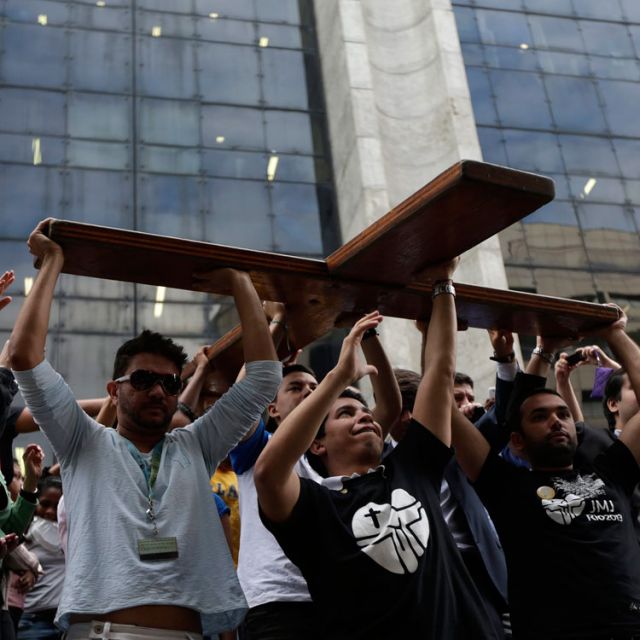Cesar Bacchim, who is working on accessibility for World Youth Day, said pilgrims with audio, visual, intellectual and mobility deficiencies will have a special place at the front of main celebrations "so that they can participate in the celebration and not be a mere spectator."
The local committee has prepared special structures to receive disabled pilgrims at the main events at Copacabana beach and vigil at Campus Fidei, in Rio's Guaratiba neighborhood, including special bathrooms and food stands with braille menus.
A team of mechanics will be on hand at the vigil site in case of wheelchair malfunctions, but pilgrims will be expected to walk or be pushed on their wheelchairs along the 8-mile route to get there.
"All of this information will be provided to the pilgrims in their Pilgrim Kit, which will include a map of where we have reserved a special area for those who need a little more help to participate," Bacchim said. He added that areas reserved for pilgrims with disabilities will be marked by a tall pole with the universal disability access symbol.
"Unfortunately, Rio de Janeiro is not a disability-friendly city," Bacchim said, noting that public transportation for those in wheelchairs is sometimes difficult.
He said such problems could be offset by the hospitality of Rio residents and the youths participating in the event.
"In an event like this, everyone helps each other out," added Bacchim.
By early July, 1,000 pilgrims with disabilities had registered for World Youth Day, but the local organizing committee said it was receiving new registrations daily. Bacchim said Brazil and the United States had the greatest number of registered pilgrims with disabilities.


